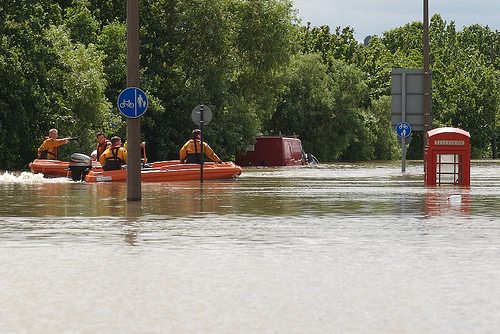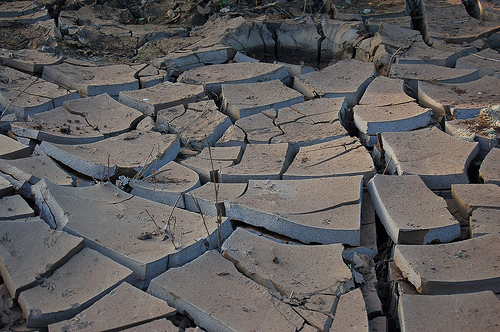
The climate has changed: The physics
The scientific consensus on the physics of climate change is that
This is the scientific consensus based on the IPCC AR6 WG1 report of 2021.
- the world has warmed on average by 1.1°C
- there are more extreme weather events
- this is caused principally by mankind's emissions of CO2
- global warming is causing increased droughts, heatwaves, storms and floods
- future emissions will cause additional warming
- the larger the total emissions, the greater the warming.
Average temperatures have increased

Source: IPCC [1]
- Temperatures have risen steadily since the early 1900s [1]
- The average is now 1.1°C higher than the pre-industrial average [1]
- The rate of warming is by far the highest in over 2000 years [1]
- Eighteen of the 19 warmest years all have occurred since 2001 [2]
- The CO2 level in the atmosphere is the highest for at least 2 million years [1]
- The sea level rise is the fastest for at lest 3000 years [1].
There are more extreme weather events
 |  |  |
- Extreme heat
- is more frequent and more intense
- record temperature "highs" are repeatedly being set around the world.
- Heavy rainfall is more frequent and more intense
- Droughts are increasing
- Fire weather is more frequent
The oceans are changing
Oceans are warming, acidifying, and losing oxygen (Source: IPCC [1])Global warming is caused principally by mankind's emissions of CO2
As the CO2 builds up in the atmosphere, the average temperature rises - see document 52.Future emissions will cause additional warming
As more CO2 is added to the atmosphere, the temperature will rise further; every tonne of CO2 emissions adds to global warming - see document 52.Unless there are immediate, rapid, and large-scale reductions in greenhouse gas emissions, limiting warming to 1.5°C will be beyond reach [3].
Sources
The information presented here is the scientific consensus, i.e. the conclusions of people who have engaged in rational collaborative discussions.The main source for this scientific consensus is the IPCC AR6 WG1 report of August 2021.
- The IPCC is the Intergovernmental Panel on Climate Change. The IPCC is the United Nations body for assessing the science relating to climate change.
- The IPCC produces an Assessment Report every 5 years. It produced the Sixth Assessment Report in 2021-2022, abbreviated as "AR6".
- The AR6 report actually consists of three reports, from each of three working groups. The first working group (known as "Working Group 1" or "WG1") concentrates on the physics. It published its IPCC AR6 WG1 report in August 2021 [4].
- The IPCC AR6 WG1 report
- assessed 14,000 scientific publications
- had 234 contributing authors from 65 countries
- used a review process which took into account 78,000+ review comments, and comments from 46 countries on the Final Government Distribution.
Alternative views
Not everyone accepts the scientific consensus given above. Some common objections are scrutinised and countered at the website https://skepticalscience.com.References
| [1] | IPCC press conference slides (Aug 2021): https://www.ipcc.ch/report/ar6/wg1/downloads/outreach/IPCC_AR6_WGI_Press_Conference_Slides.pdf |
| [2] | Nasa https://climate.nasa.gov/vital-signs/global-temperature/ (viewed 6.4.2019) |
| [3] | Abdalah Mokssit (Secretary of the IPCC) (Aug 2021) IPCC press conference https://un-spbf.org/event/ipcc-press-release-climate-action-cannot-wait/ |
| [4] | IPCC press release (Aug 2021): https://www.ipcc.ch/site/assets/uploads/2021/08/IPCC_WGI-AR6-Press-Release_en.pdf |
For copyright information on the chart and images shown, see document 2.
First published: Feb 2019
Last updated: 8 Dec 2023

 ✖
✖